Julia Cedarholm, Rising Social Entrepreneur Award Winner
This year, AMIGOS launched our first-ever Rising Social Entrepreneur Award for an outstanding alumnus. Julia Cedarholm (’11, ’12, ’13, ’14) was nominated by several of her fellow alumni and won the 2023 award for the work she’s done in the sector since her AMIGOS experiences. We got to chat with her about how AMIGOS shaped her perspective and how her career is oriented toward social entrepreneurship.
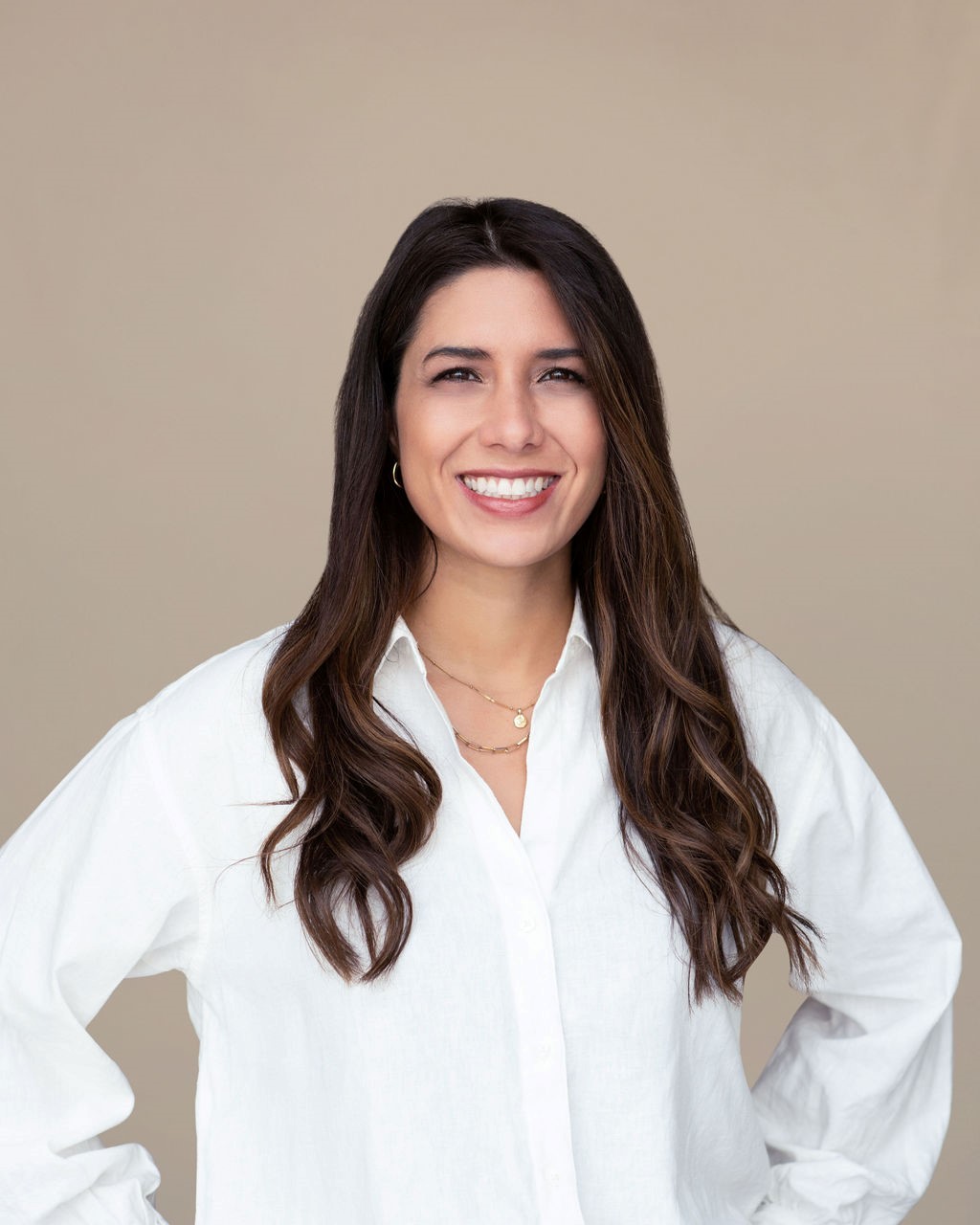
Amigos de las Américas (AMIGOS):
First, can you tell us a little about yourself?
Julia Cedarholm:
It’s been nine years now since I was an AMIGOS staff member…It’s always fun to reconnect and meet other Amigos! I currently live in New York City. I’ve been living here for about three and a half years, but I’m originally from North Carolina, born and raised there. I went to college at UNC-Chapel Hill in North Carolina and first joined AMIGOS in the summer of 2010 in Cusco, Peru – it was a pilot program. It was a lot of fun, but also really challenging for many different reasons, but just absolutely fell in love with AMIGOS, fell in love with the program, and had the most amazing experience ever. It completely transformed my worldview and my world perspective. I came back three summers after Peru – I went to Panama as a volunteer and then to San Juan, Dominican Republic as a Project Supervisor and later as an Associate Project Director.
After graduating from college, I worked in North Carolina at a nonprofit called UrbanPromise Charlotte in educational equity, youth leadership, and college access work. After three years, I moved to New York to complete a Master’s in Public Administration from NYU Wagner, where I studied social impact, innovation, and investment. During my work at UrbanPromise, I became really disheartened seeing all these social equity issues and passionate about fighting against inequity. I began to think about the systems in place that are perpetuating these issues of inequity. I started thinking about transforming the capital markets and how you can work within the investment space to shift capital to the communities that need it most.
I now work at my current firm called Arjuna Capital, a boutique impact investment firm. I focus on impact investing and shareholder activism. And it’s been fun, it’s impactful and meaningful, and I’m learning new things every day.
 AMIGOS:
AMIGOS:
That’s great! Can you tell us a little more about what you do in your role?
Julia Cedarholm:
I’ll try to keep it interesting and high-level! My firm works with high-net-worth individuals and foundations that wish to make an impact with their money. They don’t just want to invest to make more money; they want to make sure they’re investing their money in good products, services, companies, etc. Part of my job is doing something that’s called ESG equity research. ESG stands for environmental, social, and governance. Before we make an investment, if we’re considering a company, we look at the environmental implications of this investment. What is this company’s carbon footprint? What is this company doing to lower its emissions? Have they made a net zero commitment? How much energy or electricity are they using in their operations?
We look at social risks and opportunities. We look at how this company treats the workers in its supply chain. What is the average pay of an employee at this company? Are they paying their employees fairly? What’s the racial and gender representation in leadership? Are they working towards equity within the company to make sure that women and racial and ethnic minorities, have opportunities? What are the policies and practices in place to make sure this company is operating ethically? That’s a big part of what I do, evaluating and assessing. We’re looking for companies that are providing solutions to the carbon transition, climate transition, and solutions to sustainable development goals.
The other part of my job, which is really fun, is called shareholder engagement. We make an investment in a company and we try to figure out how we make this company care more about social equity and about their environmental footprint. We have a process where we engage with the company’s leadership.
We’ve pressed about 35 companies now to disclose the racial and gender pay gaps. We’ve done a lot of engagement with oil and gas companies, pushing them to decarbonize, stop investing in new fossil fuel developments, and start focusing on renewable energy instead. We’ve worked a lot on board diversity, different campaigns, and on sexual harassment, insisting companies review their sexual harassment policies and practices to make sure that they’re protecting their employees. The issues could span many different areas, but the process is basically engaging these companies and pushing for more change, social equity, and environmental justice within them.
AMIGOS:
Let’s pivot a little bit to the award that you won. How does it feel to be our first Rising Social Entrepreneur Awardee?
Julia Cedarholm:
It feels good! When I got the email from AMIGOS, it was a fun surprise. I was really touched to see the signatures from my peers on the letter. A lot of them were people that I worked with in AMIGOS or volunteered with. It was awesome just to see their participation. Every single time I meet with Amigos, I’m so impressed not only with their professional accomplishments, but also with who they are. I just went to an AMIGOS alumni event in earlier December and met all these amazing Amigos that live in New York City. And it’s just fun! You feel this automatic connection because you’ve been through the same experience and you understand where people are coming from. I feel very humbled because there are so many amazing Amigos who deserve an award like this.
 AMIGOS:
AMIGOS:
What does being a social entrepreneur mean to you?
Julia Cedarholm:
I think it’s evolved for me over the years. It’s funny because my minor in undergrad was social entrepreneurship, and then I went to grad school for it. My understanding of a social entrepreneur at 19 years old is so different than my understanding of it at 30 years old. I would say broadly, I think a social entrepreneur is someone willing to be innovative in tackling social justice issues and working toward social equity. Someone that’s not afraid to question the status quo and the current systems that are in place, and think innovatively about how to produce new solutions to some of the world’s most pressing challenges.
I think I’ve worked to be a social entrepreneur in many different sectors. I used to work at a nonprofit and had to be entrepreneurial when I was working at UrbanPromise. Asking ourselves: how do we serve our students well? How do we use the resources that we have to make sure that we’re providing really great programming for our students and providing them with great opportunities once they graduate from this program?
Working now in the private sector for an investment firm, I constantly think strategically about how we approach companies and push them to become more focused on social justice and environmental issues. How do we do things differently than the way that investment firms have done things in the past? Overall, I think it’s being innovative and thinking about new solutions to problems that have existed for a very long time.
AMIGOS:
What do you think is your greatest accomplishment?
Julia Cedarholm:
That’s a hard question. Professionally, going to graduate school felt like a huge accomplishment for me and is something that I am really proud of. It is hard when you’ve been working for a while and have a steady income to suddenly give it up to go study and not make any income for two years, especially in the middle of a global pandemic. That was tough. It took a lot of courage to leave, especially because I loved the work that I was doing and it felt meaningful. It was really hard to leave the students and families that I was working with to go to grad school. But I knew in the long run that I wanted to have more of an impact with my career as well. I wanted to tackle more of the systems that were in place that were contributing to the issues that my students and families were experiencing on a day-to-day basis. I knew in the long run that it was best. But it took a lot of courage to leave and to go to grad school and to finish grad school throughout the global pandemic and really try to get the most out of it to learn as much as possible in a remote learning environment.
Personally, my 20s have been a huge decade of learning. I’m no longer in my twenties now, but it was a decade of learning about myself, learning about what I want out of life, and who I want to be. I think I had to do a lot of personal work to develop courage, resiliency, and self-love throughout my twenties, and I feel really proud of where I’m at and who I am now because of the work that I’ve done.
 AMIGOS:
AMIGOS:
Looking forward, going ahead, if you could do one thing to leave a mark on your life, what would it be?
Julia Cedarholm:
I think at a macro professional level, it’s important to me that my career is impact-driven. I do not work in investing because I care about financial investment and financial analysis. I find it interesting, but that’s not the reason that I work in investing. I work in investing because I think it can really impact communities, and I believe in the possibilities of impact investing. It’s really what is driving me and I hope that my career continues to be impact-driven. I hope that whatever I do in my career, it’s fighting for a more equitable world where all people have opportunities and are able to live vibrant lives.
Personally, for me, relationships and fellowship are the most important things outside of what I’m doing in my professional world. I hope that I can continue to make great relationships and live in great fellowship with people in my community.
AMIGOS:
Do you have a motto or phrase that gives you the motivation to keep going when you face a challenge?
Julia Cedarholm:
Yeah, I think there are two. I think one goes all the way back to my AMIGOS days. It was kind of fun reminiscing on this and how I even started adopting this mantra in my life, but it says, “there’s no growth in comfort and there’s no comfort in growth.” I remember someone shared that during our midterm when I was in Peru with AMIGOS. Peru was one of the most challenging experiences of my life, for sure. It required a lot of resiliency. I grew a lot in the discomfort and I would repeat that to myself when I was in Peru. This was uncomfortable for me personally, professionally, and physically even. But I’m growing and I’m grateful to be growing. For me, having a growth mindset is so important.
Then the other one is self-compassion. It’s really easy for me to be compassionate and empathetic toward others. But, it’s hard for me to be compassionate and empathetic with myself. I am my own worst critic all the way, and I oftentimes think about how I would never talk to other people the way I sometimes talk to myself. Kristin Neff has a really great book called Self Compassion and one of the quotes that she says is, “May I be kind to myself in this moment? May I give myself the compassion that I need?” When I’m having a challenging experience it’s easy for me to become critical, but reminding myself to give myself the same compassion that I would give to others has been helpful for me throughout life’s transitions and challenges.
AMIGOS:
That’s wonderful, and it’s a lesson to keep learning over and over and over again.
How would a friend of yours describe you?
Julia Cedarholm:
I think they would describe me as someone who’s really passionate about everything that I do. I tend to have strong opinions and pretty strong convictions about everything. I think they would describe me as someone who’s passionate and also puts their all into everything that they do, sometimes to a disservice to myself, going back to the self-compassion thing. I think they would describe me as a passionate, hard worker, who cares a lot about making a difference. I think that a huge value to me is making a difference in the world, but also in my community and in my relationships. I don’t want to be a bystander in any of those areas.
 AMIGOS:
AMIGOS:
You talked about your AMIGOS experience in Peru, and we know that the longer programs in the more rural, mountainous places are tough. It’s not easy. But you came back again and again. How was that for you? What made you want to come back?
Julia Cedarholm:
Wow, 2011 was 12 years ago. I was a very different person then. I was so naive and so young. Being in Peru with AMIGOS was the most challenging experience, but also the most rewarding and amazing experience. I learned more in those eight weeks than I have in many other longer lengths of my life. I remember leaving and already knowing that I wanted to come back and do it again. I wanted to have another challenge. It was so rewarding because even though it was so hard, I learned so much.
I pushed myself to new boundaries that I didn’t know I could push myself to. I absolutely developed a lot of competencies, my own leadership and more confidence in my own decision-making, my confidence to travel and go to new cultures and meet new people, and in my Spanish. I knew that doing any other internship in the US. I would not learn that much. I also knew that I wouldn’t really have an experience like AMIGOS again outside of my college years. So, I wanted to take advantage of the college summers.
Panama was a very different experience; it was a little bit shorter. It was a six-week program. And it was much less challenging. The program in general had been around for years upon years, so we didn’t have to convince community members about AMIGOS and establish trust with them.
I think at that point I had been a volunteer for two years and knew I wanted to give back to the program. Even after I left AMIGOS, I wanted to give back to other students and be a part of other students’ learning journeys. I absolutely loved being on staff. I developed amazing relationships with the volunteers and it was a special experience to be able to be with other people while they’re learning and while they’re going through their own AMIGOS experience–while their mind is opening up to these new cultures and new relationships and seeing their worldview expand. Being able to play a part in that is amazing! Now I’m convincing myself that I want to go back and be on staff!
Overall, my AMIGOS experiences were very different in different ways. Some were more challenging than others, but every single one was incredibly enriching and rewarding. I think the relationships that I made throughout the AMIGOS program were some of the best parts of being involved.
AMIGOS:
What advice would you give a young person today about joining AMIGOS? And why is the experience valuable, especially at a young age?
Julia Cedarholm:
I would say be open-minded going into AMIGOS and be more willing to learn than to teach.
I would encourage an AMIGOS volunteer to go in with a humble spirit and to be more open to learning than teaching and to really engage in the mutual learning process. I think there’s something so beautiful about taking people from different cultures, different experiences, different backgrounds, and fostering relationships that way, and there is mutual learning in those relationships. I would also encourage them to be curious and not make assumptions about other cultures or other people about why things are done a certain way. Just be curious and ask the hard questions too about economic systems that are in place and why some communities have less than other communities. I encourage participants to be critical thinkers and be curious about their AMIGOS experience.
 AMIGOS:
AMIGOS:
There has been a lot of discussion about volunteering abroad in general and how it can have more of an impact on the participant than the host community. I’d like to hear what your thoughts are on that?
Julia Cedarholm:
I thought about this a lot too. I think a lot of times the program participants have more transforming experiences than maybe the communities. I think I’m grateful that the AMIGOS mission even has evolved over the years. It’s important to ask how do we at least make sure we’re not doing harm in these communities? Let’s make sure this is either a net-neutral experience for those in the community or a positive experience for those in the community.
I think this experience can compel AMIGOS participants to commit themselves to a life of service and a life of fighting for social justice issues. When I think back on my experience, and the projects that I did in Peru, who knows if the community library is still in existence? For me, I know that it inspired me to continue working toward social justice in my own life. Even domestically. I thought after AMIGOS, I was going to go into international development. Then I realized, wait! there are a lot of social justice and social equity issues domestically right here in my community. So, what can I do here? How can I leverage my education, my experiences, and my privilege? How do I make sure that I’m using those things to give back and continue fighting for social justice and be a public servant? AMIGOS is a huge reason why I’m in the career that I’m in today.
I don’t know if I would have felt so passionate about social justice issues and would have felt so passionate about committing my career to public service and social impact. Those eight weeks in Peru inspired me to have a career committed to this and hopefully, it achieves more lasting change and cascading impact.


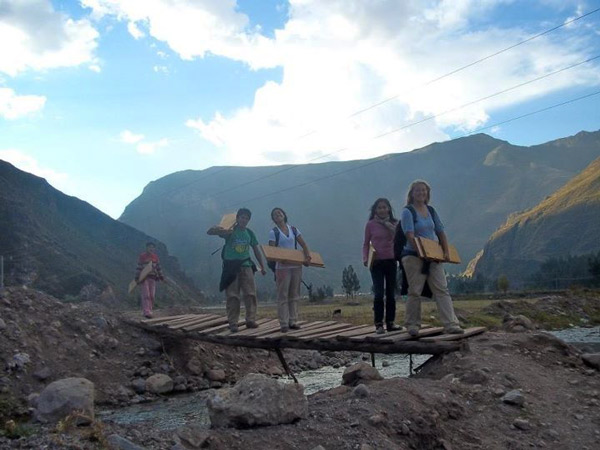 AMIGOS:
AMIGOS: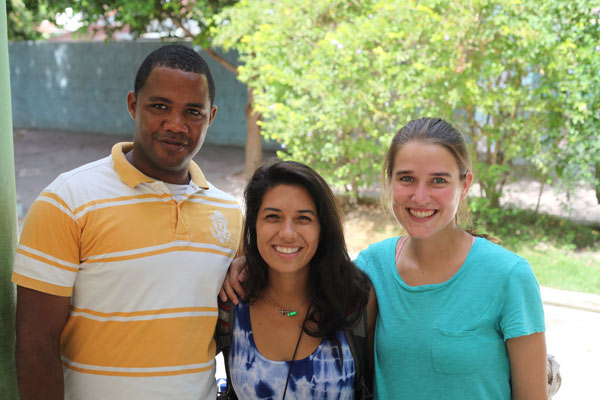 AMIGOS:
AMIGOS: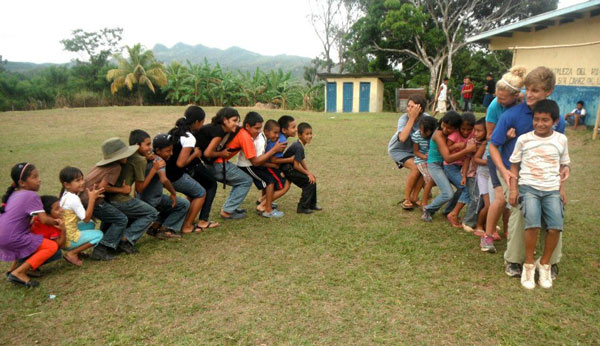 AMIGOS:
AMIGOS: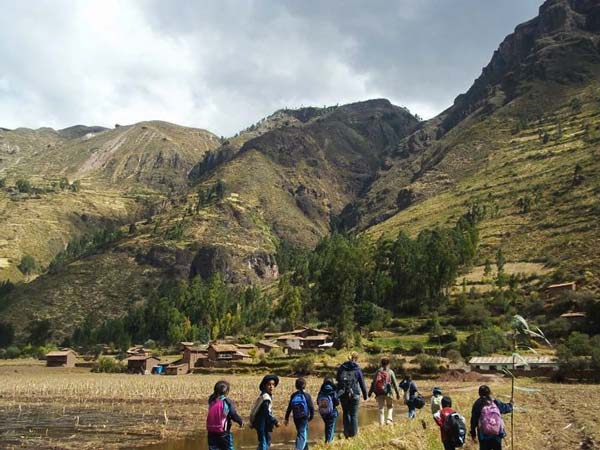 AMIGOS:
AMIGOS: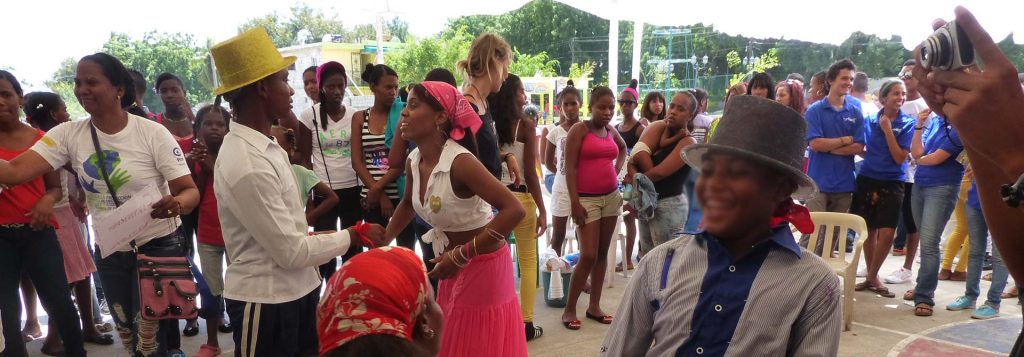 AMIGOS:
AMIGOS: